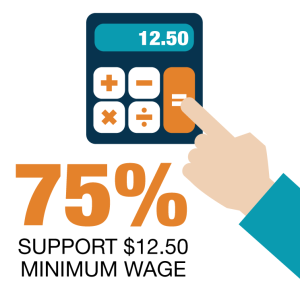By Derrek Cummings on December 15th, 2015
With the 2016 presidential election in full swing, a galaxy of political issues has bombarded American employers. Presented with this jumble of factors, employers must assess which policies best protect their interests.
It’s often difficult to navigate the logic of political debates. With every candidate promising to offer the best solution, discerning employers must weigh the arguments and decide how each proposal will impact their business.
During the tenure of Barack Obama, several major changes affecting employers occurred. The next president will either strengthen or amend many of these policies. The fallout of some decisions has yet to land, while other changes stand in the wings, awaiting their entrance.
With the political sphere in transition, the seven most vital reasons why employers should care about the election include:
- The relevance of the Affordable Care Act (Obamacare) and the Employer Mandate
- The possible increase of the federal minimum wage
- The Time Off to Vote Act
- Paid Family Leave
- Labor reform and the Browning-Ferris ruling
- The economy
- Results of lower unemployment
Employers should consider these reasons and their effect on the freedom and profits of businesses in the future. Prudent employers must realize what’s at stake.
1. The Affordable Care Act’s Influence and the Employer Mandate
A central element in the 2016 elections concerns the Affordable Care Act (ACA) and its relation to businesses.
When the ACA passed in 2010, House Speaker John Boehner called the law a “job-killing government takeover of health care that will hurt small businesses.” Since then, Republicans repeatedly emphasized the harmful effects for employers. In June 2015, presidential hopeful Lindsey Graham repeated the claim that the ACA is “stifling job creation.”
This opinion reflects a consensus in the Republican party, but Democrats believe the ACA is working and giving Americans the health coverage and security they deserve.
The Employer Mandate
The area of the ACA that potentially harms employers centers on the Employer Mandate. This stipulation requires that any business with over 50 full-time employees (FTE) must provide 95% of these employees and their dependents with health insurance. If they do not, the employer will face a fine of $2,000 per month for every FTE after the first 30 employees.
This “shared responsibility” finds justification in the assumption that the FTE would otherwise need to receive a government-subsidized plan. Of course, if the employee declines, their employer will not face the penalty. Enforcement of this law will occur in 2016.
The Job-Killing Argument
Logically, this creates an incentive to hire fewer than 50 people or relegate employees to only part-time status by limiting their hours to below 30 hours per week. Republicans like Susan Collins have put forth this point.
The Democrats acknowledge that some companies will strategically reduce FTE work hours. In addressing this problem, the Democrats offer little condolence. Nothing can prevent businesses from circumventing these requirements. Republicans point to this loophole in the Employer Mandate as a wide-spread problem with dire implications for the economy.
 The Actual Impact
The Actual Impact
In reality, 96 percent of American businesses employ fewer than 50 FTEs. Of the remaining 4 percent, very few don’t already provide employees with adequate coverage. But those employers who do not provide insurance do so on large scales. The Employer Mandate provides 1.2 million Americans with coverage for which the government would otherwise need to pay.
The Employer Mandate will statistically affect less than a percent of American employers. Yet, the Republicans return to the issue repeatedly. This focus seems grounded in an ideological hatred of “Obamacare” and government intervention in the freedom of business.
Every Republican candidate has sworn to repeal the Affordable Care Act. Seeing as Republicans have voted to overturn the law on 54 occasions, the election of a Republican president will seal the fate of the ACA.
2. Minimum Wage Increase
For employers, one central issue in the 2016 election concerns minimum wage increases. The question of raising the minimum wage has gained prominence in the election.
Democratic candidates Bernie Sanders and Martin O’Malley have both made campaign promises to raise the federal minimum wage from its current rate of $7.25 to $15 per hour. Hillary Clinton followed suit with a less dramatic proposal of $12 per hour.
The growing national desire for a higher minimum wage has undoubtedly influenced their decisions. A survey conducted in January 2015 showed that 75 percent of the country supports a minimum wage of $12.50 by 2020, including 53 percent of Republicans.
Despite voter demand, most Republicans remained firmly opposed to any minimum wage hike. Donald Trump believes “a low minimum wage is not a bad thing for the country,” while Jeb Bush advocates eliminating the minimum wage altogether saying, “We need to leave it to the private sector.”
The only GOP candidates who appear sympathetic to a raise are Ben Carson, Rick Santorum and George Pataki. However, their attitudes remain subdued and reflect little interest in change.
Opposition to the Increase
Republicans argue that if the minimum wage goes up, employers won’t add workers to the payroll. It’s sometimes difficult for employers to balance workforce costs and still hire new employees. This hurts people trying to find entry-level work.
Economists David Neumark and William Wascher endorse this viewpoint. They also warn that increased wages contribute to inflation.
According to their research, employers must boost prices to finance higher wages. This reduces the purchasing power for the employees of a given community.
One Size Does Not Fit All
Other similar arguments point to the difference in economies on a state-by-state basis. For instance, New York enjoys an economy better equipped to handle wage increase. These conditions have enabled New York to recently increase the minimum wage to $15 for city workers and fast-food employees. These raises appear part of a larger program brought forth by the state.
Governor Andrew Cuomo has proclaimed that “every working man and woman in the state of New York deserves $15 an hour.” However, poorer states like Mississippi don’t necessarily have the luxury of financing higher minimum wages and might suffer from a forced federal wage increase.
A Long-Awaited Change
Although the issue clearly involves many considerations, Americans appear resilient in their demands for an increase. The bureau of labor statistics claims that 3 million workers earn the federal minimum wage or less.
These people already need to deal with Neumark and Wascher’s scenario of reduced buying power. Since the minimum wage was increased in 2009, inflation has caused the purchasing power of the dollar to suffer by 8.1 percent.
Voter discontent has pushed this issue to the forefront of the 2016 election. Regardless of which party achieves victory, the minimum wage will likely go up. Although the wage will ascend gradually, employers should prepare for inevitable increases.
3. The Time Off to Vote Act
Another impact the election will have for employers concerns the Time Off to Vote Act. Put forth in June 2015 by the Democrats, this bill gives all employees two hours of paid leave off work to facilitate voting on federal election day. The employer may choose which two hours to allow an employee to go vote, but they cannot dock them pay or benefits.
If this law fails to materialize before the 2016 election, it will certainly pass in the event of a Democrat victory.
The law seeks to solidify the patchwork of different states’ paid leave voting laws:
- 24 states grant workers two hours of paid compensation in order to vote
- 26 states offer less than two hours
- 19 states of these 26 offer no paid leave
Efforts to enact this law have wavered. Despite Democrat Matt Cartwright’s argument that “we can no longer afford laws that push people out of the electorate,” Republican recalcitrance has apparently delayed the bill.
4. Paid Family Leave
Employers watching the 2016 election should monitor the debate on paid family leave. National yearning for longer paid leave has pushed the issue into the campaign spotlight. Presently, the Family Medical Leave Act permits employees 12 weeks of unpaid absence from the workplace.
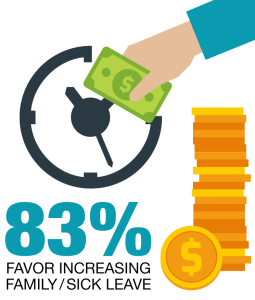
The Democrats made the first move in March 2015 towards funding the current 12 weeks of allotted leave. Their bill, the Family and Medical Insurance Leave Act, will finance an employee’s leave with money from the treasury if they meet certain qualifications.
The next day, on March 19, Republicans put forth their version of the Democrats’ bill — the Family Friendly and Workplace Flexibility Act of 2015.
This bill offers employees a choice with regards to working overtime. Workers can either accept payment of “time-and-a-half” for overtime or accept normal payment and save up the additional 30-minute bonuses for every hour of overtime to use as paid leave. In this version, no government taxes would go towards paying for leave.
As the election progresses, it remains unclear which of these versions will pass. Regardless of the success of these bills, the issue has erupted into campaign dialogue with Democrats emphasizing the importance of reform.
America now stands as the only developed country that fails to offer paid family or maternity leave. Bernie Sanders has called the contemporary system “a travesty.” Clinton and O’Malley also support changing policy.
Republicans have remained fairly quiet on the issue. With popular support in mind, Republicans face a dilemma. The Roosevelt Institute survey showed 67 percent Republican voter support for paid leave. With this in mind, Republicans need to navigate the issue carefully. They want to discourage government pressure on businesses while satisfying contradictory voter demands.
Marco Rubio has suggested offering tax credits to employers who provide paid leave themselves. Some experts view this plan as counterproductive. Political commentator Pat Garofalo claims that Rubio’s plan “will toss some money at companies that already provide paid leave, rather than incentivizing companies that don’t to do so.”
As the election unfolds, employers should expect the law to change. Employers will need to create a strategy for dealing with their employees’ future absence from work. Unfortunately, the responsibility will fall on employers in facilitating a smooth transition to the new system should such a change occur.
5. Labor Policy Reform
The 2016 election has significance for employers calculating the fallout of recent labor reforms. If present labor laws stand, they could have far-reaching consequences for employers.
Browning-Ferris
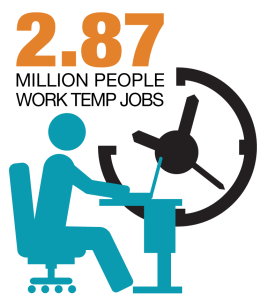
In the United States, 2.87 million people work in temporary job-placement agencies. This status allows businesses to not employ people in any official regard. For instance, it saves employers having to defend inappropriate actions or be held responsible for injuries.
Essentially, Browning-Ferris has included contract labor within the definitions of employment. The ruling states that if a company determines a contractor’s wage, shifts and production standards, the company legally employs the individual.
This greatly affects the relationship between “temp” agencies and their clients. If clients demonstrate the above criteria, then they can be held as “joint employers” of the temps along with the agency.
The Birth of Fast-Food Unions
The implications of having “employees” versus “contractors” centers on the rights of employees to form unions and negotiate with corporate headquarters.
This aspect holds particular significance for fast-food workers. Because fast-food workers are legally employed by their particular franchises, they cannot form unions or hold the parent company accountable for work conditions. Essentially, they only behave as contractors for the company.
In redefining employment, Browning-Ferris now allows employees of fast-food corporations to form unions and discuss terms with the highest relevant office available to them.
The lasting power of this groundbreaking decision hinges on the 2016 election. The National Labor Relations Board acts as an independent organization headed by individuals appointed directly by the president.
Leading up to the 2016 election, Republicans have sworn to overturn Browning-Ferris. In the meantime, fast-food workers shouldn’t get their hopes up — McDonalds has already made motions to contend the ruling.
Regardless of the lasting power of the ruling, employers should familiarize themselves with the implications of the new labor law, especially if they employ contractors.
6. The Economy
Employers should consider which 2016 candidate will best improve the economy. Under the Obama administration, the economy has drastically improved.
- Unemployment has shrunk to 5.5% from 10% in 2009
- The federal deficit is 1 trillion dollars lower than in 2009
- NASDAQ and the Dow Jones have climbed to record highs
- The economy boomed at a rate of 2.4% — the largest climb in almost 100 years
- 7.2 million jobs were created, the highest job opening rate in 14 years
- U.S. exports have increased 39%
- Corporate profits have increased 174%
- Business deaths have declined by 18%
The economy has undoubtedly improved under Obama. However, Republicans believe that economic gains have occurred despite Obama’s decisions. This argument seems to claim that the miraculous growth under Obama has been a coincidence.
In the Republicans’ defense, the government does possess little power over the economy. Austan Goolsbee, who until 2011 acted as Obama’s economic advisor, claims “90 percent of [the economy] has nothing to do with Washington.” However, Goolsbee does think that Obama deserves to take some credit, especially by avoiding austerity measures — the type that crippled the Greek economy.
Going into the 2016 election, employers need to acknowledge the successful economic policy of the Democrats. But past accomplishments don’t guarantee that Clinton, Sanders or O’Malley will foster the same progress.
In the meantime, Republicans have downplayed Obama’s success while assuring voters that this progress will only get better.
7. The Results of Reduced Unemployment
Employers benefit from a better economy by finding more appropriate employees. The reduced number of people applying for positions has made it easier for employers. Not only do employers not have to sift through stacks of applications, but the people that do apply frequently present more relevant traits.
Statistically, every possible job has three times as many people vying to fill the position. This amount has gone down by half since 2009. Hopefully, this will help cut down on the rate of over-qualified applicants who may present an ill fit for the job.
As the 2016 election progresses, employers should consider how policies might change or become more firmly entrenched. Some policies will benefit employers, while others will force them to behave through government influence.

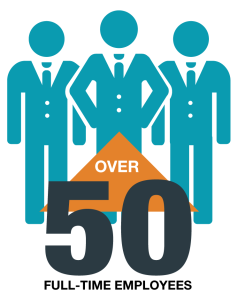
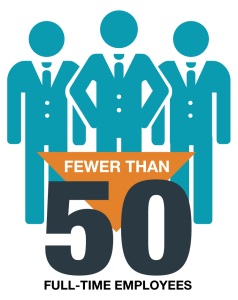 The Actual Impact
The Actual Impact